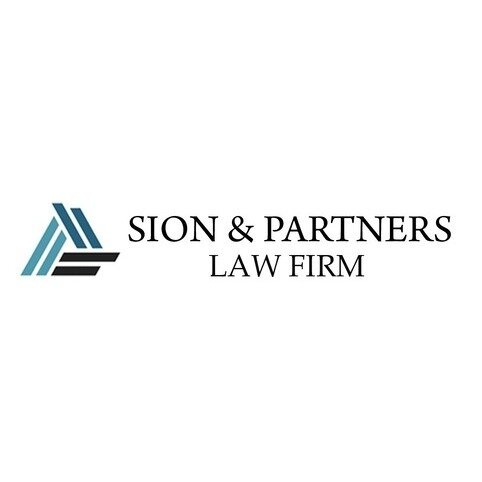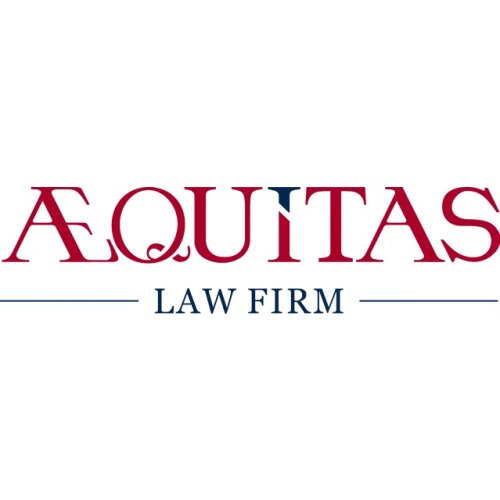Best Communications & Media Law Lawyers in Kazakhstan
Share your needs with us, get contacted by law firms.
Free. Takes 2 min.
Or refine your search by selecting a city:
List of the best lawyers in Kazakhstan
About Communications & Media Law in Kazakhstan
Communications & Media Law in Kazakhstan is a legal field that governs the regulation of media outlets, telecommunications, internet service providers, and other forms of communication. It focuses on ensuring freedom of expression while also protecting the public interest and individuals' rights. As a rapidly developing field, it is crucial to understand the legal framework to navigate the complex landscape of communications and media in Kazakhstan.
Why You May Need a Lawyer
There are several situations where you may require legal assistance in Communications & Media Law in Kazakhstan. Some common scenarios include defamation claims, intellectual property disputes, regulatory compliance issues, contract negotiations, and copyright infringement cases. A lawyer specializing in Communications & Media Law can help protect your rights and provide expert guidance in these complex legal matters.
Local Laws Overview
In Kazakhstan, Communications & Media Law is governed by the Constitution, the Law on Information, Informatization, and Protection of Information Rights, the Law on Telecommunications, and other relevant regulations. Key aspects of local laws include requirements for media registration, protection of intellectual property rights, restrictions on content distribution, and data privacy regulations. It is essential to comply with these laws to avoid legal repercussions and protect your interests in the communications and media sector.
Frequently Asked Questions
1. What is the process for registering a media outlet in Kazakhstan?
In Kazakhstan, media outlets must register with the Ministry of Information and Social Development to operate legally. The registration process involves submitting the necessary documentation and complying with specific requirements set forth by the authorities.
2. How can I protect my intellectual property rights in the communications and media sector?
To protect your intellectual property rights in Kazakhstan, you can register your works with the Intellectual Property Rights Office and include copyright notices on your content. Consulting with a lawyer specializing in intellectual property law can also help safeguard your creative works.
3. Are there restrictions on content distribution in Kazakhstan?
Yes, there are restrictions on content distribution in Kazakhstan, including prohibitions on distributing harmful information, inciting violence or hatred, and disseminating false information. It is essential to adhere to these restrictions to avoid legal consequences.
4. What are the penalties for defamation in Kazakhstan?
Defamation in Kazakhstan is considered a civil offense, and individuals can be held liable for damages resulting from defamatory statements. Penalties may include monetary compensation and other legal consequences.
5. How can I ensure compliance with data privacy regulations in Kazakhstan?
To ensure compliance with data privacy regulations in Kazakhstan, you should implement data protection measures, obtain consent from individuals before collecting their data, and comply with the requirements outlined in the Law on Personal Data Protection.
6. Can I seek legal recourse for copyright infringement in Kazakhstan?
Yes, you can seek legal recourse for copyright infringement in Kazakhstan by contacting a lawyer specializing in intellectual property law, gathering evidence of the infringement, and initiating legal proceedings against the infringing party.
7. What are the legal requirements for telecommunications providers in Kazakhstan?
Telecommunications providers in Kazakhstan must obtain licenses from the regulatory authorities, comply with technical standards, ensure network security, and protect consumers' rights. Failure to meet these requirements can result in penalties and legal sanctions.
8. How can a lawyer help me negotiate contracts in the communications and media sector?
A lawyer specializing in Communications & Media Law can review and negotiate contracts on your behalf, ensure that your rights are protected, and advise you on the legal implications of the terms and conditions outlined in the contract.
9. What are the implications of non-compliance with media regulations in Kazakhstan?
Non-compliance with media regulations in Kazakhstan can result in fines, suspension of operations, and other legal penalties. It is crucial to abide by the regulations to avoid legal consequences and maintain your legal standing in the communications and media sector.
10. How can I stay informed about changes in Communications & Media Law in Kazakhstan?
You can stay informed about changes in Communications & Media Law in Kazakhstan by following updates from the Ministry of Information and Social Development, consulting legal resources, and seeking guidance from legal professionals specializing in the field.
Additional Resources
For further information on Communications & Media Law in Kazakhstan, you can visit the Ministry of Information and Social Development website, contact the Kazakhstan Bar Association, or reach out to legal organizations specializing in media and telecommunications law.
Next Steps
If you require legal assistance in Communications & Media Law in Kazakhstan, it is recommended to contact a law firm or legal professional specializing in the field. They can provide expert guidance, legal representation, and valuable insights to help you navigate the complex legal landscape and protect your interests in the communications and media sector.
Lawzana helps you find the best lawyers and law firms in Kazakhstan through a curated and pre-screened list of qualified legal professionals. Our platform offers rankings and detailed profiles of attorneys and law firms, allowing you to compare based on practice areas, including Communications & Media Law, experience, and client feedback.
Each profile includes a description of the firm's areas of practice, client reviews, team members and partners, year of establishment, spoken languages, office locations, contact information, social media presence, and any published articles or resources. Most firms on our platform speak English and are experienced in both local and international legal matters.
Get a quote from top-rated law firms in Kazakhstan — quickly, securely, and without unnecessary hassle.
Disclaimer:
The information provided on this page is for general informational purposes only and does not constitute legal advice. While we strive to ensure the accuracy and relevance of the content, legal information may change over time, and interpretations of the law can vary. You should always consult with a qualified legal professional for advice specific to your situation.
We disclaim all liability for actions taken or not taken based on the content of this page. If you believe any information is incorrect or outdated, please contact us, and we will review and update it where appropriate.
Browse communications & media law law firms by city in Kazakhstan
Refine your search by selecting a city.











